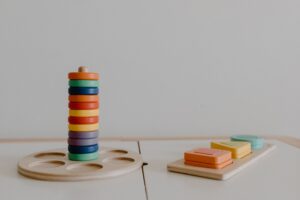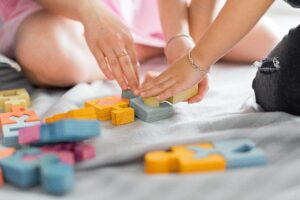10 Benefits of Puzzles for People with Dementia

Dementia is a term used to describe a decline in cognitive abilities and memory that can impact daily life. It is a complex condition that can cause a range of symptoms, including memory loss, mood swings, and difficulty with communication.
While there is no cure for dementia, there are various activities that can help to slow down the progression of the disease and improve quality of life.
One such activity is doing puzzles. In this article, we will explore 10 benefits of puzzles for people with dementia.
1-Stimulates the Brain:
Doing puzzles can help to stimulate the brain, promoting healthy brain activity and potentially slowing down the progression of dementia.
2-Improves Cognitive Function:
By challenging the brain, puzzles can help to improve cognitive function, including memory, problem-solving skills, and reasoning abilities.
3-Increases Concentration:
Concentrating on a puzzle can help to improve focus and attention, which is particularly beneficial for people with dementia who may experience difficulty with concentration.
4-Provides a Sense of Accomplishment:
When a puzzle is completed, it can provide a sense of accomplishment and boost self-esteem, which is particularly important for people with dementia who may feel frustrated or discouraged.
5-Reduces Stress and Anxiety:
The repetitive and calming nature of doing puzzles can help to reduce stress and anxiety levels, providing a sense of relaxation and tranquility.
6-Promotes Socialization:
Doing puzzles with a friend or family member can be a fun and social activity that can help to improve relationships and provide an opportunity for bonding.
7-Improves Hand-Eye Coordination:
Manipulating puzzle pieces can help to improve hand-eye coordination, fine motor skills, and dexterity.
8-Provides a Sense of Purpose:
Doing puzzles can give people with dementia a sense of purpose and something to look forward to, providing structure and routine to their day.
9-Boosts Memory:
By engaging in activities that challenge the memory, such as recalling the location of puzzle pieces, puzzles can help to boost memory and recall abilities.
10-Promotes Relaxation:
Doing puzzles can be a calming and relaxing activity that provides a welcome break from the demands of daily life and can help to reduce feelings of stress and anxiety.
In conclusion
Doing puzzles can be a valuable and enjoyable activity for people with dementia. The benefits of puzzles are numerous and include stimulating the brain, improving cognitive function, reducing stress and anxiety, promoting socialization, and much more. Whether working on a jigsaw puzzle or a crossword, puzzles provide a fun and engaging way to help improve quality of life for people with dementia.




